Samsung's Galaxy Note 20 Ultra holds the crown as the biggest Samsung phone ever made, featuring a massive 6.9-inch display that dwarfs most competitors. When I first picked up the Note 20 Ultra at the store, I actually laughed out loud. The sales rep asked what was funny, and I told him it felt like someone had handed me a TV remote that could make phone calls. But after using it for a week, I couldn't go back to smaller screens.
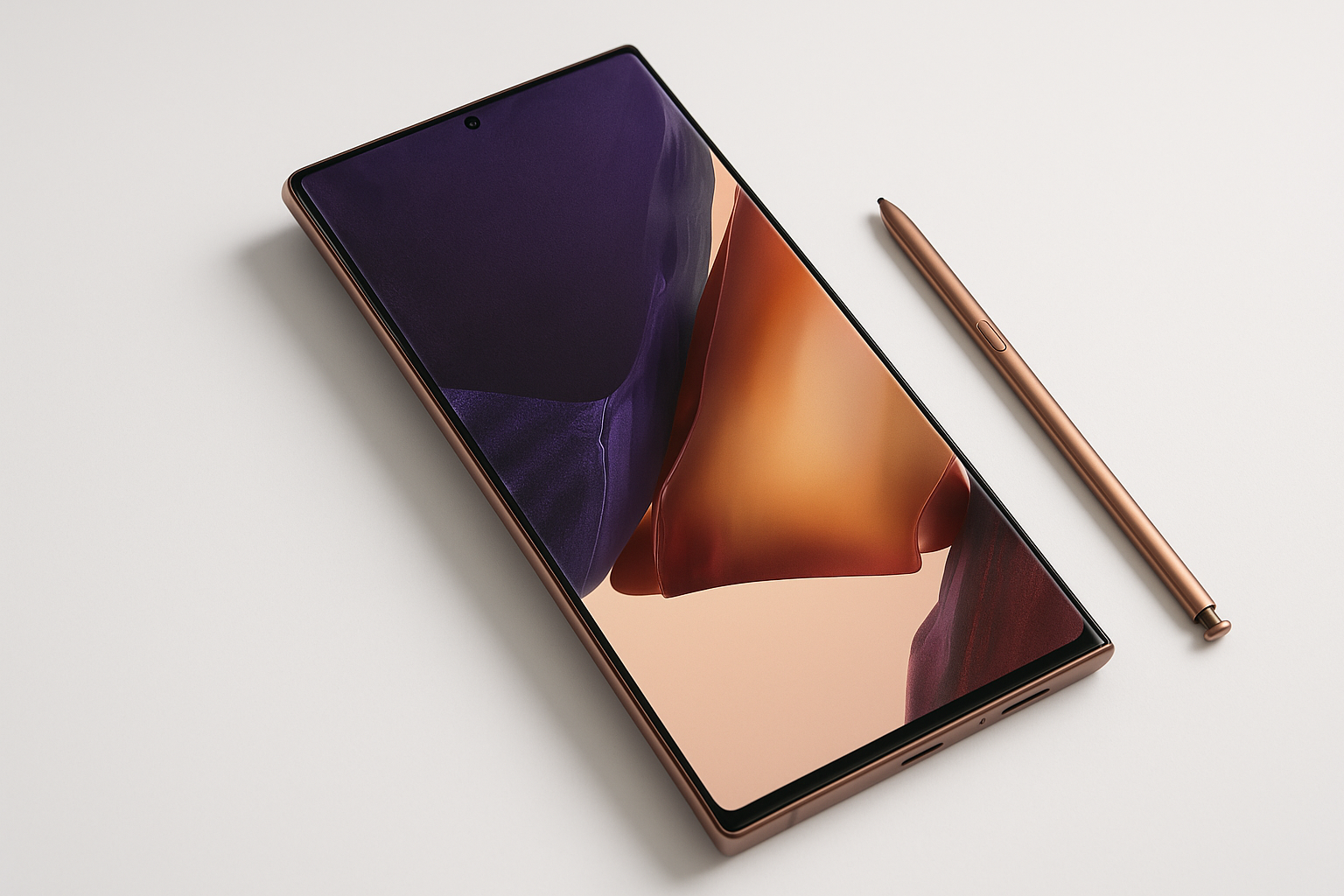
According to UR's comprehensive analysis, the Note 20 Ultra's 6.9-inch screen offers "the most screen real estate in Samsung's refurbished lineup," making it the definitive answer for anyone asking which is the biggest samsung phone available today.
Here's what's interesting – while the Note 20 Ultra technically wins the size battle, Samsung's current lineup offers several compelling alternatives that come remarkably close while delivering more modern features and better optimization. The samsung galaxy s25 ultra leads the pack with its 6.8-inch display and cutting-edge technology that makes every interaction feel effortless, though honestly, the difference in daily use is barely noticeable.
Table of Contents
TL;DR: Quick Takeaways
What Makes a Samsung Phone "Big"
Top 25 Biggest Samsung Phones Ranked
Flagship Ultra Series Champions
Plus Series Powerhouses
Fan Edition Value Leaders
A-Series Budget Giants
Gaming-Focused Large Screens
Foldable Screen Innovations
How Screen Size Impacts Daily Use
Battery Life vs Display Size Reality
Protection Needs for Large Phones
Final Thoughts
TL;DR: Quick Takeaways
Samsung Galaxy Note 20 Ultra remains the biggest Samsung phone at 6.9 inches, though it's discontinued (and good luck finding one in decent condition)
Samsung galaxy s25 ultra leads current models with a 6.8-inch display, but the price will make your wallet cry
Foldable phones like the Z Fold series offer 7.6-inch screens when unfolded, assuming the hinge doesn't break
Plus series phones (6.6-6.7 inches) hit the sweet spot for most people who aren't trying to prove a point
A-series models prove you don't need flagship pricing for large screens, though you'll sacrifice some performance
Gaming on these big screens looks amazing until they turn into hand warmers
Battery life doesn't always scale with screen size, which is honestly pretty annoying
Large phones require serious protection because dropping a $1,200 device hurts more than just your pride
Samsung's biggest phones span multiple series and price points, with the discontinued Note 20 Ultra holding the size record while current models offer the best balance of large screen space and modern features. Your mileage may vary, but understanding the trade-offs between size, performance, and actually being able to use the thing one-handed helps identify which big phone fits your specific needs and budget.
The reality is that choosing a big phone involves more than just screen measurements – you're basically committing to a completely different way of using your phone, and not everyone's ready for that adjustment.
What Makes a Samsung Phone "Big"
Screen diagonal measurement tells only part of the story, and honestly, it's kind of misleading sometimes. Samsung's approach to large screen phones involves multiple factors that affect how "big" a device actually feels when you're trying to use it while juggling coffee and car keys.
Display Technology and Efficiency
Samsung's AMOLED panels look really good across their large phone lineup, but the underlying technology varies more than you'd expect. Dynamic AMOLED 2X displays on flagship models are noticeably brighter and more colorful compared to standard Super AMOLED panels found on budget options – the difference is obvious when you put them side by side.
The refresh rate makes a huge difference too, though it took me a while to really notice. 120Hz displays on larger screens create much smoother scrolling and more responsive touch input. I didn't think it mattered until I went back to a 60Hz phone and everything felt choppy.
Consider the difference between scrolling through a long document on the Galaxy S25 Ultra versus the Galaxy A56. Both phones have 6.7+ inch displays, but the Ultra's fancy LTPO technology automatically adjusts between 1Hz and 120Hz based on what you're doing. When you're reading an e-book, it drops to 1Hz to save battery, but instantly ramps up to 120Hz when you start scrolling. The A56 just stays at whatever refresh rate it's set to. It sounds minor, but the Ultra feels way more responsive in actual use.
Physical Dimensions Beyond Screen Size
Bezel thickness makes a bigger difference than the specs suggest. Samsung's Ultra series crams more screen into roughly the same phone size through minimal bezels and curved edges, while budget models often have thick borders that make the phone feel bulkier than necessary.
Weight distribution matters more than total weight, and this is something you only figure out after living with a phone for a while. A well-balanced 6.8-inch phone feels easier to handle than a poorly designed 6.4-inch device that's top-heavy. I've noticed this particularly when trying to use phones one-handed – even a few millimeters of better balance can make the difference between comfortable use and constantly readjusting your grip.
Performance Scaling for Large Displays
Bigger screens need more processing power to run smoothly, and budget phones sometimes struggle here. Samsung's flagship processors handle large display rendering without breaking a sweat, while mid-range chips can get bogged down when you're running multiple apps – something you'll do more often with all that screen space.
Thermal management becomes a real issue with large phones. These things get hot when you push them, and Samsung's vapor chamber cooling in premium models prevents the performance slowdowns that plague cheaper alternatives. This isn't just about gaming – even basic stuff like video calls or GPS navigation can make a big phone uncomfortably warm without proper cooling systems.
Samsung's definition of "big" goes way beyond just measuring the diagonal. The most successful large Samsung phones balance substantial screen space with efficient power management, premium display technology, and ergonomic design that makes the size advantage actually useful rather than just impressive on paper.
Top 25 Biggest Samsung Phones Ranked
Rank |
Model |
Screen Size |
Series |
Key Feature |
Current Status |
|---|---|---|---|---|---|
1 |
Galaxy Note 20 Ultra |
6.9" |
Note |
S Pen Integration |
Discontinued |
2 |
Galaxy S25 Ultra |
6.8" |
Ultra |
Latest Flagship |
Current |
3 |
Galaxy S24 Ultra |
6.8" |
Ultra |
Titanium Build |
Current |
4 |
Galaxy S23 Ultra |
6.8" |
Ultra |
200MP Camera |
Current |
5 |
Galaxy S25 Plus |
6.7" |
Plus |
Value Flagship |
Current |
6 |
Galaxy S24 Plus |
6.7" |
Plus |
Flat Display |
Current |
7 |
Galaxy A73 |
6.7" |
A-Series |
Budget Large Screen |
Regional |
8 |
Galaxy S23 Plus |
6.6" |
Plus |
Optimized Performance |
Current |
9 |
Galaxy S22 Plus |
6.6" |
Plus |
Refined Design |
Legacy |
10 |
Galaxy S21 Plus |
6.7" |
Plus |
120Hz Standard |
Legacy |
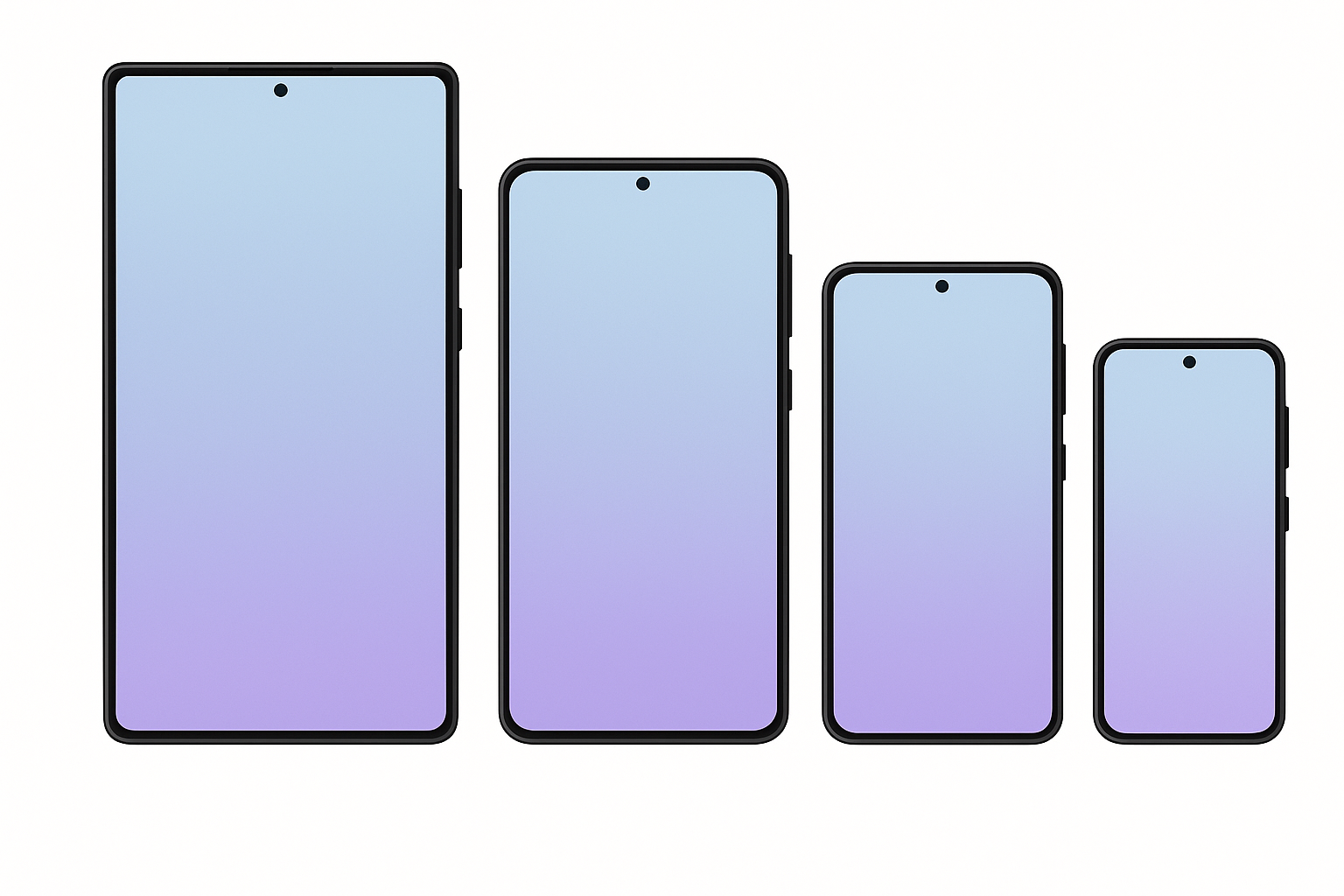
1. Flagship Ultra Series Champions
1. Samsung Galaxy Note 20 Ultra
The undisputed king of Samsung phone sizes, though finding one in decent condition these days is like hunting for unicorns. The Note 20 Ultra's 6.9-inch Dynamic AMOLED 2X display remains unmatched in Samsung's history, and this big phone really did push boundaries when it launched back in 2020 when everyone was stuck at home.
Performance-wise, it ran everything I threw at it through either the Exynos 990 or Snapdragon 865+ (depending on where you lived), though it got pretty warm during intensive gaming sessions. The 4500mAh battery got me through most days, but heavy use meant reaching for the charger by evening.
Key Specifications:
Display: 6.9" Dynamic AMOLED 2X, 1440 x 3088 pixels
Processor: Exynos 990 / Snapdragon 865+
Battery: 4500mAh with 25W fast charging
Weight: 208g (feels like holding a small brick)
2. Samsung Galaxy S25 Ultra
Samsung's current flagship represents the best of large phone engineering, though the price tag will make you question your life choices. The samsung galaxy s25 ultra's 6.8-inch display nearly matches the Note 20 Ultra while being noticeably brighter and more efficient.
The Snapdragon 8 Elite processor (slightly overclocked for Galaxy devices) handles everything smoothly, and the 5000mAh battery actually lasts longer than the older Note despite the similar screen size. Samsung also made it feel less awkward to hold, which took them long enough.
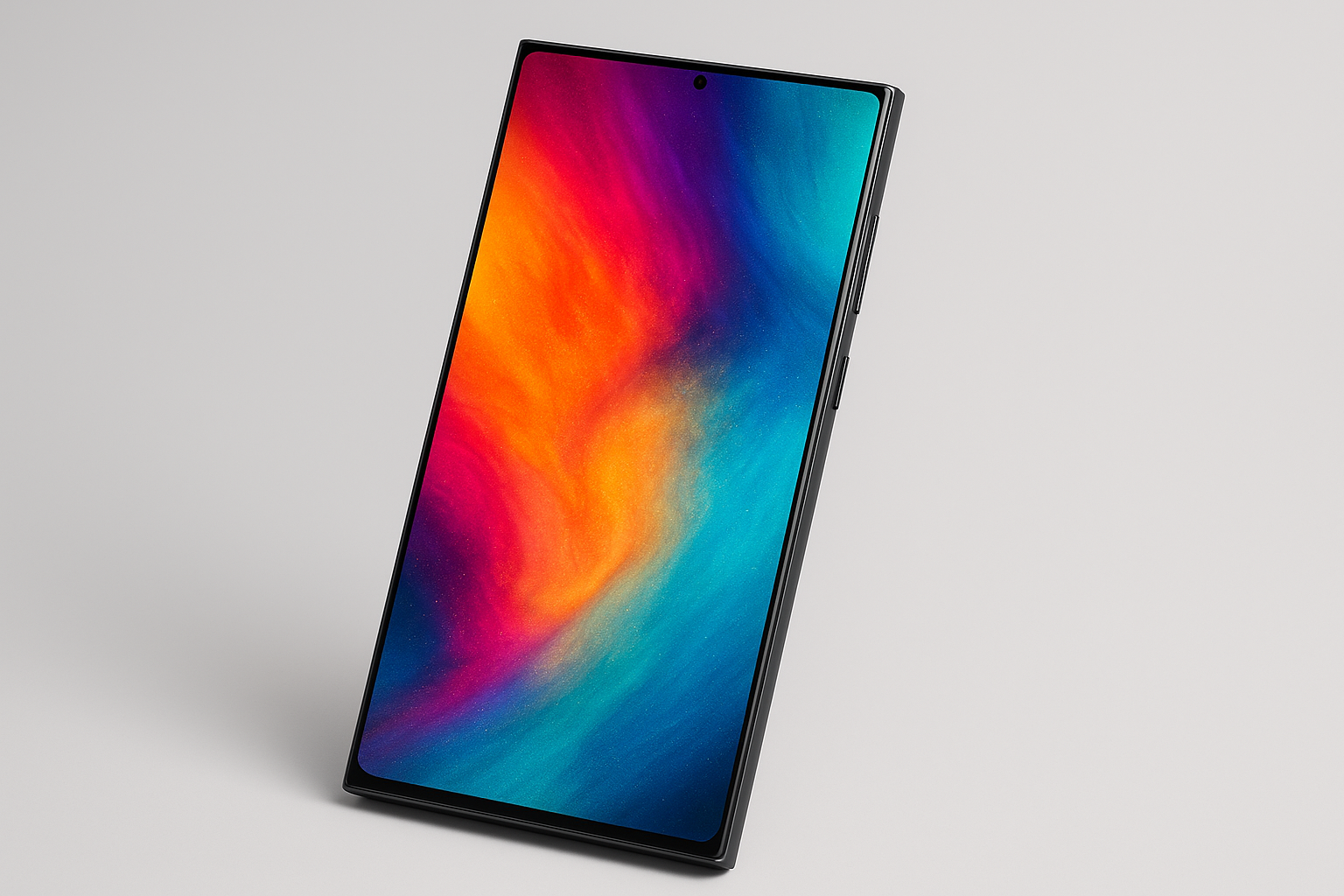
Key Specifications:
Display: 6.8" Dynamic AMOLED 2X, 1440 x 3120 pixels, 120Hz
Processor: Snapdragon 8 Elite (3nm)
Battery: 5000mAh with 45W fast charging
Cameras: 200MP main + advanced telephoto system
3. Samsung Galaxy S24 Ultra
The S24 Ultra brought titanium construction and anti-reflective coating that actually makes a difference when you're trying to use your phone outside. Its 6.8-inch display matches the samsung galaxy s25 ultra in size but uses slightly older display technology – not that you'd really notice unless you put them side by side.
Gorilla Armor glass is genuinely tougher than previous generations, which matters when you're dealing with a phone this expensive and this prone to slipping out of your hands. The S Pen feels more responsive than older versions, making it actually useful for taking notes during meetings instead of just a novelty.
Key Specifications:
Display: 6.8" Dynamic AMOLED 2X with anti-reflective coating
Build: Titanium frame with Gorilla Armor
Processor: Snapdragon 8 Gen 3
S Pen: Enhanced with improved latency
4. Samsung Galaxy S23 Ultra
This model established the design that Samsung still uses today, for better or worse. The 6.8-inch display looked great and stayed bright enough for outdoor use, while the 200MP camera system took genuinely impressive photos – when you could figure out all the settings.
The Snapdragon 8 Gen 2 processor was a big improvement over previous generations in terms of not turning into a hand warmer. Samsung's optimization work really showed here – I could game for extended periods without the phone throttling performance, which was a pleasant surprise.
Key Specifications:
Display: 6.8" Dynamic AMOLED 2X
Processor: Snapdragon 8 Gen 2 (globally, thank goodness)
Cameras: 200MP main with improved night photography
Design: Less awkward to hold than previous Ultra phones
2. Plus Series Powerhouses
5. Samsung Galaxy S25 Plus
The S25 Plus hits the sweet spot for many people – big screen without the Ultra's ridiculous price tag. It shares the same Snapdragon 8 Elite processor as the Ultra model, so performance is basically identical for everything except the most demanding tasks.
Battery life is actually better than the Ultra in many situations because the slightly smaller display uses less power. The 4900mAh capacity easily gets me through full days with heavy use, often with 20% left over.
A typical workday with the Galaxy S25 Plus might involve streaming videos during my commute, using productivity apps for a few hours, video calls, and constant messaging. With this kind of usage, I consistently end the day with 15-20% battery remaining, while the larger Ultra model usually finishes with 10-15% despite having a bigger 5000mAh battery. The smaller screen just sips power more efficiently.
Key Specifications:
Display: 6.7" Dynamic AMOLED, 1440 x 3120 pixels, 120Hz
Processor: Snapdragon 8 Elite
Battery: 4900mAh with 45W charging
Price: Under $1000 (barely)
6. Samsung Galaxy S24 Plus
This model offered a compelling alternative to the Ultra series with its 6.7-inch display and premium build quality. The flat screen design made it more durable and easier to find decent screen protectors for, which is honestly a bigger deal than Samsung wants to admit.
Performance stayed flagship-level through the Snapdragon 8 Gen 3, and the camera system worked well for most situations. The lack of S Pen didn't bother me since I rarely used it anyway, even on phones that had it.
Key Specifications:
Display: 6.7" Dynamic AMOLED 2X, flat design
Build: Premium materials that feel solid
Cameras: Triple system that covers most use cases
Software: Seven years of updates (we'll see if they stick to that)
7. Samsung Galaxy S23 Plus
The S23 Plus delivered 6.6-inch screen space with much better battery optimization than the S22 Plus it replaced. Samsung finally seemed to figure out the Plus formula with this generation – good balance between features and not completely emptying your bank account.
The camera system, while not matching Ultra specs, took solid photos for everyday use. Performance stayed smooth thanks to the efficient Snapdragon 8 Gen 2 processor, though intensive gaming still made it warm to the touch.
Key Specifications:
Display: 6.6" FHD+ with adaptive refresh rate
Processor: Snapdragon 8 Gen 2
Battery: Much better optimization than the S22+
Design: Gorilla Glass Victus 2 protection
8. Samsung Galaxy S22 Plus
This model introduced the camera bump design that Samsung still uses, though it makes the phone wobble on desks like a seesaw. The 6.6-inch display looked good and got bright enough for outdoor use, but battery life was honestly pretty disappointing.
The 50MP main camera was a significant improvement in low-light situations compared to previous Plus models. However, the 4500mAh battery struggled to keep up with heavy use, especially if you actually used all those fancy camera features.
Key Specifications:
Display: 6.6" Dynamic AMOLED 2X
Cameras: 50MP main with decent night mode
Battery: 4500mAh (adequate on good days, frustrating on heavy use days)
Design: Contour Cut camera that makes it rock on flat surfaces
9. Samsung Galaxy S21 Plus
The S21 Plus offered 6.7-inch screen space during Samsung's transition to more sustainable packaging, which really meant "no charger included and you'll pay extra for one." The 120Hz adaptive refresh rate provided smooth scrolling while trying to conserve battery life.
This model marked Samsung's shift toward longer software support commitments, making it a decent long-term investment. The camera system delivered solid results despite some cost-cutting measures in build materials – the plastic back actually felt fine in daily use.
Key Specifications:
Display: 6.7" Dynamic AMOLED 2X with 120Hz
Design: Contour Cut camera with distinctive styling
Software: Extended update commitment (still getting updates)
Connectivity: 5G standard, though coverage varies wildly by location
3. Fan Edition Value Leaders
10. Samsung Galaxy S25 FE
The newest Fan Edition model delivers flagship features without the flagship price shock. Its 6.7-inch display provides tons of screen space while maintaining the premium AMOLED quality Samsung is known for, though you'll notice some corners were cut if you compare directly to Ultra models.
Performance stays flagship-level through careful processor selection and optimization. Samsung's commitment to seven-year software support makes this an excellent long-term value, assuming they actually follow through this time.
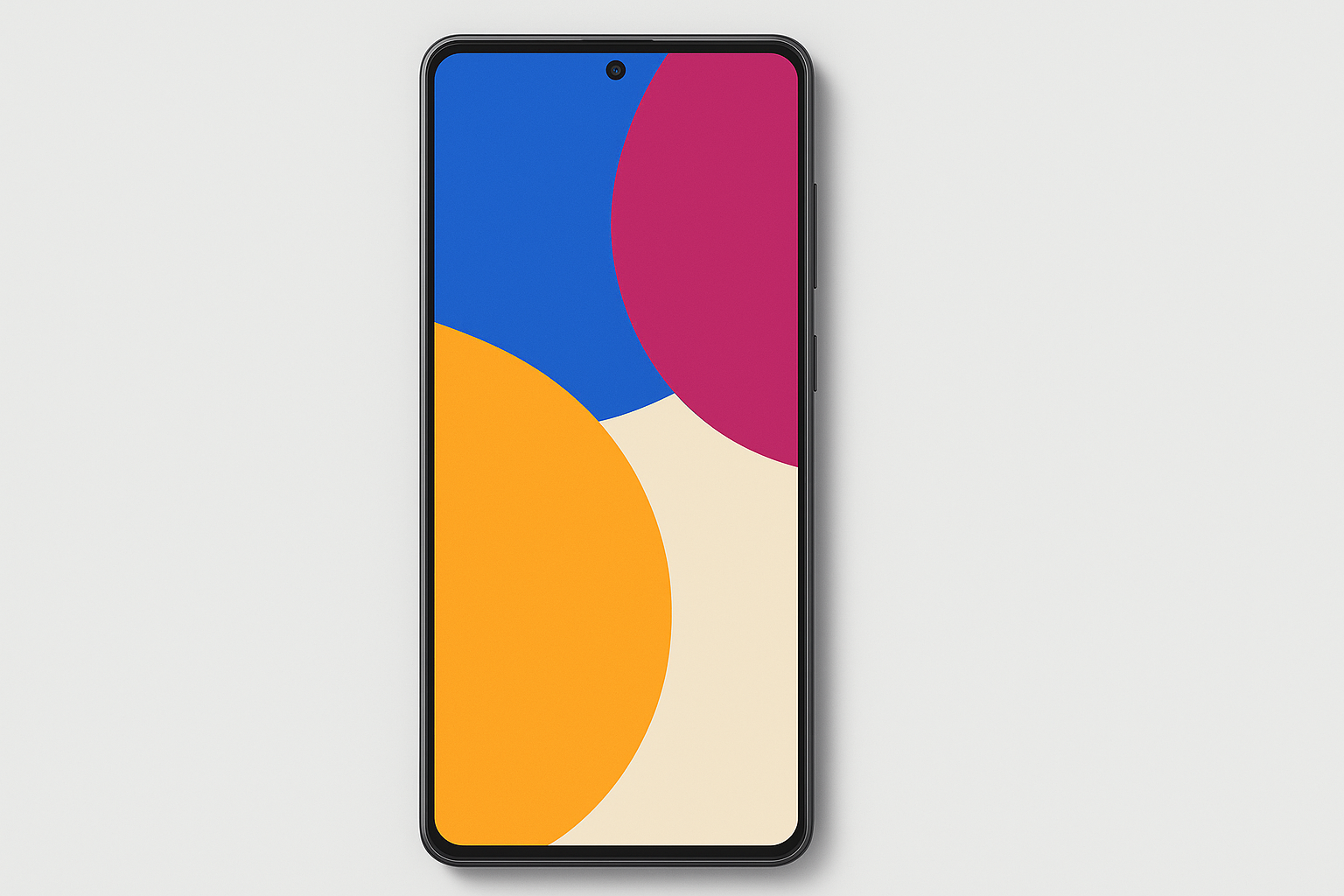
Key Specifications:
Display: 6.7" Super AMOLED with 120Hz
Performance: Flagship-level without the flagship price pain
Software: Seven years of updates (fingers crossed)
Value: Premium features without selling a kidney
11. Samsung Galaxy S24 FE
This model proved that Fan Edition phones could deliver genuine flagship experiences without completely destroying your budget. The 6.7-inch Super AMOLED display looked almost as good as more expensive siblings.
Camera performance impressed with its versatile triple system, and battery life exceeded my expectations thanks to efficient power management. The build quality felt premium despite the lower price point, though it's definitely not as refined as the Ultra models.
Key Specifications:
Display: 6.7" Super AMOLED
Cameras: Borrowed features from flagship models
Battery: Better optimization than expected
Support: Long-term software commitment
12. Samsung Galaxy S23 FE
The S23 FE delivered 6.4-inch screen space with Snapdragon 8 Gen 1 performance – a solid combination for people wanting flagship features without flagship pricing. The camera system borrowed heavily from the main S23 series, which was smart.
Build quality impressed with premium materials and solid construction. Samsung's optimization work ensured smooth performance despite using a slightly older processor architecture, though you could tell it wasn't quite as snappy as current flagships.
Key Specifications:
Display: 6.4" Dynamic AMOLED 2X
Processor: Snapdragon 8 Gen 1
Cameras: 50MP triple system with flagship features
Positioning: Premium features at accessible pricing
13. Samsung Galaxy S21 FE
This model established the Fan Edition formula that continues today. The 6.4-inch Super AMOLED display provided excellent quality, and the 120Hz refresh rate made everything feel smooth and responsive.
The polycarbonate back actually felt better than glass in some ways – lighter weight and less slippery. Camera performance delivered flagship-quality results, making this an excellent choice for big phone enthusiasts who didn't want to spend Ultra money.
Key Specifications:
Display: 6.4" Super AMOLED with 120Hz
Build: Polycarbonate back (lighter and more durable than glass)
Cameras: Flagship camera experience at FE pricing
Value: Established what FE phones could be
4. A-Series Budget Giants
14. Samsung Galaxy A73
The A73 leads Samsung's budget lineup with its impressive 6.7-inch Super AMOLED+ display. This phone proves you don't need to spend flagship money for a large, good-looking screen – the display quality honestly rivals much more expensive models.
The 108MP main camera takes surprisingly good photos for the price point, and the 5000mAh battery easily lasts all day. Performance handles daily tasks smoothly, though intensive gaming shows the limitations of the mid-range processor pretty quickly.
Key Specifications:
Display: 6.7" Super AMOLED+
Cameras: 108MP main with capable supporting lenses
Battery: 5000mAh with solid optimization
Value: Premium A-series features without breaking the bank
15. Samsung Galaxy A56
The latest A-series model offers 6.7-inch screen space with noticeably improved performance over previous generations. Samsung's commitment to seven-year software support makes this an exceptional long-term value, assuming they actually deliver.
The Super AMOLED display looks vibrant and gets bright enough for outdoor use, while the 5000mAh battery provides reliable all-day performance. Fast 45W charging helps minimize downtime when you do need to plug in.
Key Specifications:
Display: 6.7" Super AMOLED with 120Hz
Performance: Improved over previous A-series models
Software: Seven years of updates (we'll see)
Charging: 45W fast charging
16. Samsung Galaxy A55
This model delivered 6.6-inch screen space with 50MP camera performance that impressed for its price point. The Super AMOLED display provided excellent viewing quality for streaming videos and general use.
Build quality felt more premium than the price suggested, and performance handled most tasks smoothly. The 5000mAh battery provided reliable endurance for typical usage patterns, though heavy gaming drained it faster than expected.
Key Specifications:
Display: 6.6" Super AMOLED
Cameras: 50MP main with OIS (rare at this price)
Battery: 5000mAh with good optimization
Design: Premium feel despite budget positioning
17. Samsung Galaxy A54
The A54 offered 6.4-inch screen space with Exynos 1380 performance that handled daily tasks well enough. The 50MP main camera included OIS, which was unusual and welcome at this price segment.
Samsung's commitment to four years of security updates provided decent long-term value. The Super AMOLED display looked great for media consumption and general use, though it wasn't quite as bright as flagship models.
Key Specifications:
Display: 6.4" Super AMOLED
Cameras: 50MP with OIS (impressive for the price)
Processor: Exynos 1380 with adequate performance
Updates: Four years of security support
18. Samsung Galaxy A53
This model provided 6.5-inch screen space with a quad camera system that offered versatile photography options. The 5000mAh battery provided excellent endurance for the price point, easily lasting full days.
The 90Hz refresh rate made scrolling feel smooth, and IP67 water resistance added durability you don't usually get at this price. Samsung's environmental focus meant no charger in the box, which was annoying but predictable.
Key Specifications:
Display: 6.5" Super AMOLED with 90Hz
Cameras: 64MP quad system with versatile options
Protection: IP67 water resistance
Environmental: No charger included (bring your own)
19. Samsung Galaxy A52
The A52 delivered 6.5-inch Super AMOLED quality with 90Hz refresh rate smoothness. The Snapdragon 720G processor provided reliable performance for most tasks, though you could feel its limitations with demanding apps.
IP67 water resistance was a nice surprise at this price point, and the camera system delivered decent results for everyday photography. Battery life impressed with the 5000mAh capacity lasting well into the evening.
Key Specifications:
Display: 6.5" Super AMOLED with 90Hz
Processor: Snapdragon 720G with reliable performance
Protection: IP67 water resistance at budget pricing
Battery: 5000mAh with excellent endurance
20. Samsung Galaxy M54
This regional model offered 6.7-inch Super AMOLED+ display with impressive specs for markets outside the US. The 108MP camera system delivered flagship-level photography at mid-range pricing, which was genuinely impressive.
The massive 6000mAh battery provided exceptional endurance – often lasting two full days with moderate use. Performance through the Exynos 1380 handled most tasks smoothly, though gaming performance showed some limitations.
Key Specifications:
Display: 6.7" Super AMOLED+
Cameras: 108MP main with supporting lenses
Battery: 6000mAh for exceptional endurance
Availability: Regional focus outside US markets
21. Samsung Galaxy F54
The F54 matched the M54's specifications while targeting online-exclusive sales channels. The 6.7-inch display provided excellent quality, and the 108MP camera delivered impressive results for the price.
The 6000mAh battery capacity stood out even among large phones, providing multi-day usage for many users. This model proved Samsung could deliver flagship features through alternative sales channels.
A-Series Model |
Screen Size |
Battery |
Camera |
Price Range |
Best For |
|---|---|---|---|---|---|
Galaxy A73 |
6.7" |
5000mAh |
108MP |
$400-500 |
Media Consumption |
Galaxy A56 |
6.7" |
5000mAh |
50MP |
$350-450 |
Long-term Value |
Galaxy A55 |
6.6" |
5000mAh |
50MP OIS |
$300-400 |
Balanced Performance |
Galaxy A54 |
6.4" |
5000mAh |
50MP OIS |
$250-350 |
Budget Conscious |
Galaxy A53 |
6.5" |
5000mAh |
64MP Quad |
$200-300 |
Entry Large Screen |
Galaxy A52 |
6.5" |
5000mAh |
64MP Quad |
$150-250 |
Value Seeker |
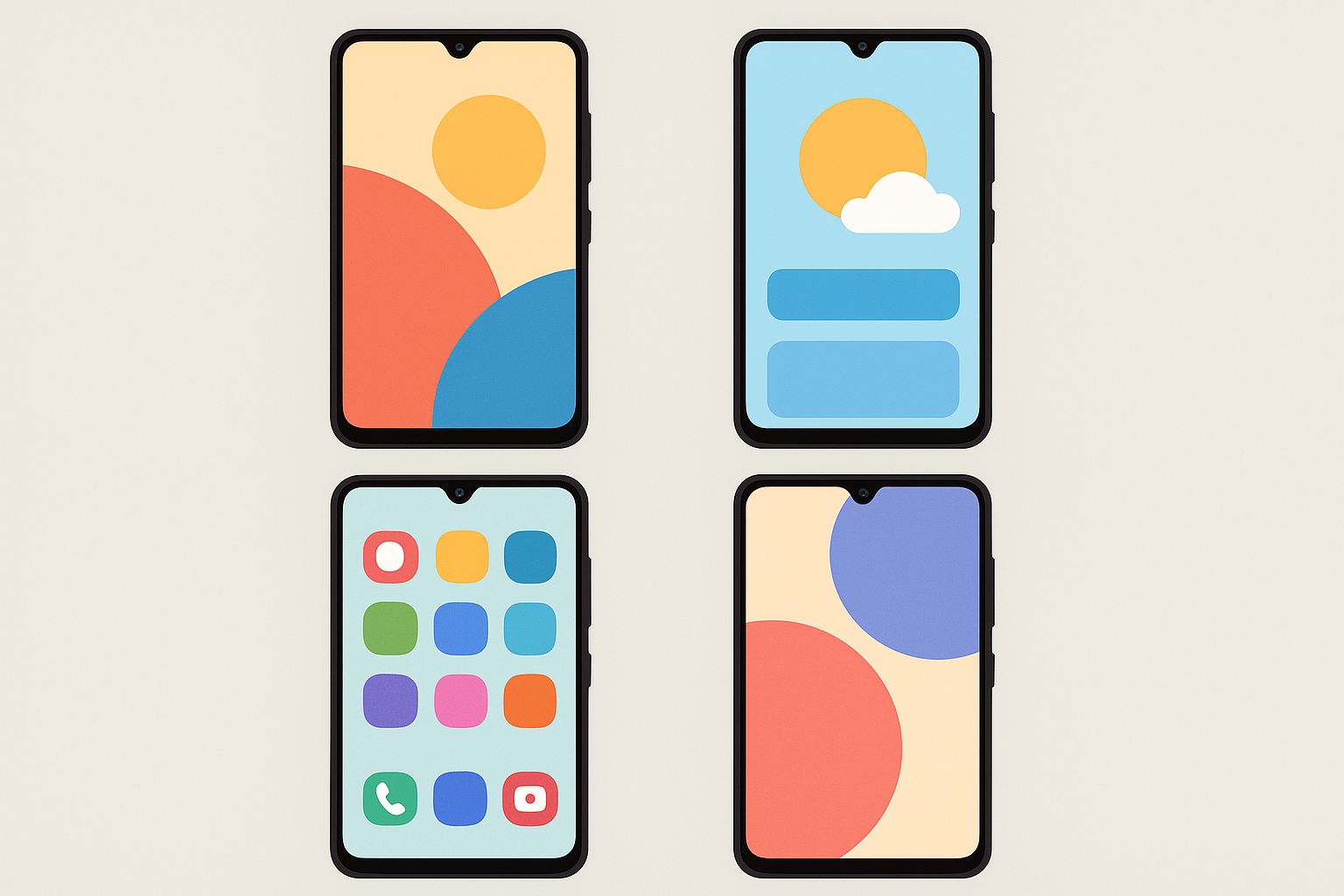
Key Specifications:
Display: 6.7" Super AMOLED+
Cameras: 108MP main camera system
Battery: 6000mAh for extended usage
Sales: Online-exclusive availability
5. Gaming-Focused Large Screens
22. Samsung Galaxy S25 Ultra (Gaming Optimized)
While identical to the standard S25 Ultra, Samsung's gaming optimizations make this worth considering separately. The vapor chamber cooling system prevents thermal throttling during extended gaming sessions, though it still gets warm after an hour of intensive gaming.
Game Booster software provides performance optimization and system resource management, though honestly, it's hit or miss depending on the game. The 120Hz LTPO display delivers smooth gameplay with adaptive refresh rates that help conserve battery during less demanding scenes.
Gaming Features:
Vapor chamber cooling for sustained performance
Game Booster optimization software (when it works)
120Hz LTPO display with adaptive refresh
Desktop-class GPU performance that gets hot quickly
23. Samsung Galaxy A36 (Gaming Focus)
This budget option delivers 6.7-inch gaming space without flagship pricing, though don't expect miracles. The Snapdragon 6 Gen 3 processor shows its limitations with demanding games pretty quickly, but lighter games run smoothly enough.
The 5000mAh battery provides extended gaming sessions, and the 120Hz display ensures smooth gameplay for supported titles. Thermal management stays adequate for the processor's capabilities, meaning it doesn't get uncomfortably hot.
Gaming Specifications:
Display: 6.7" with 120Hz for smooth gameplay
Processor: Snapdragon 6 Gen 3 (fine for lighter games)
Battery: 5000mAh for extended sessions
Value: Gaming features at budget pricing
6. Foldable Screen Innovations
24. Samsung Galaxy Z Fold 7
When unfolded, the Z Fold 7's 8-inch display makes traditional phones look tiny, though the crease is still visible if you're looking for it. The 6.5-inch cover screen provides full phone functionality without opening the device, which is genuinely useful.
The Snapdragon 8 Elite processor handles multitasking across the large display smoothly, though the battery drains faster when you're actually using all that screen space. Samsung's refined hinge mechanism feels more durable than previous generations, but I'm still nervous about long-term reliability.
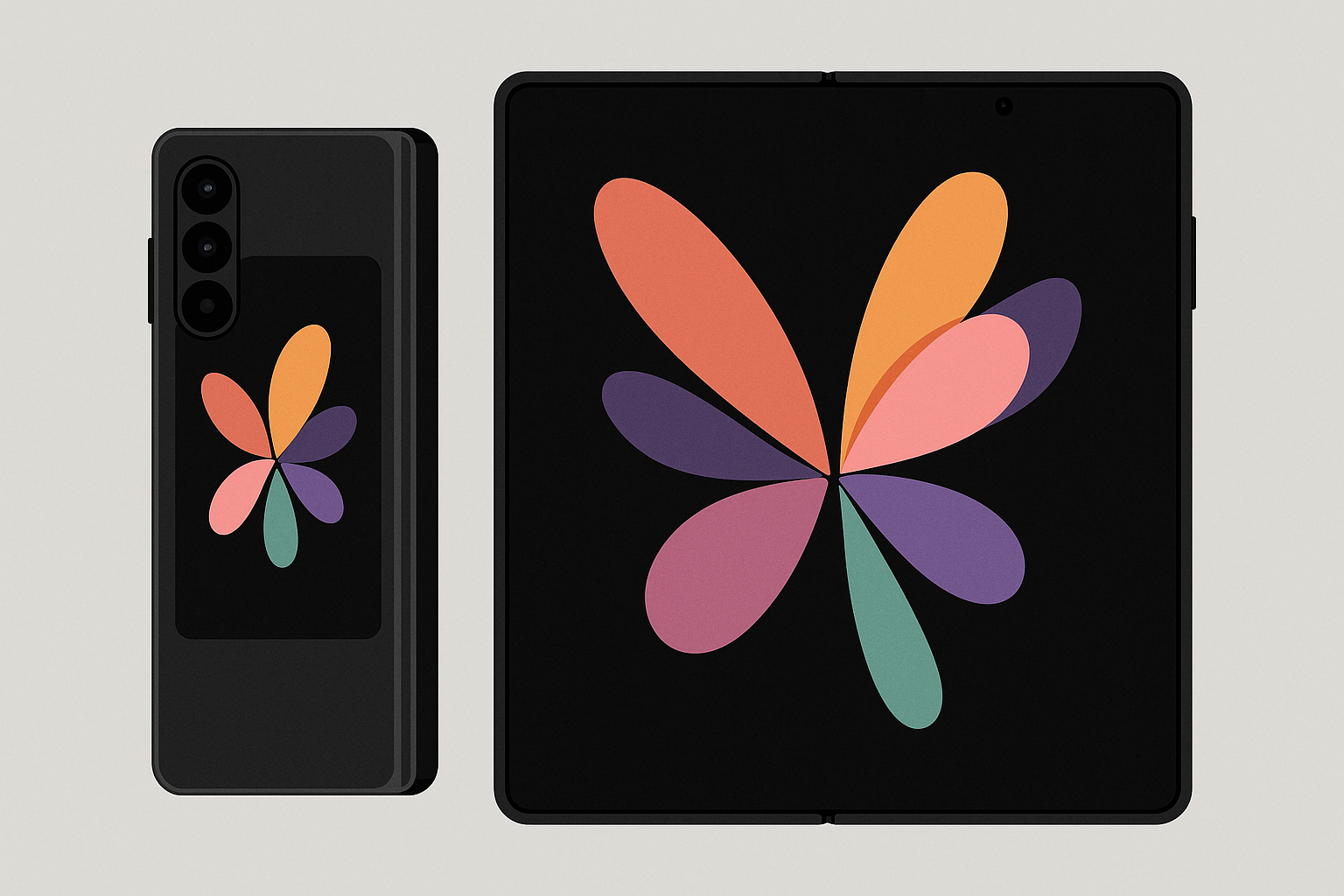
Foldable Specifications:
Main Display: 8" flexible OLED, 120Hz, QHD+
Cover Screen: 6.5" for standard phone use
Processor: Snapdragon 8 Elite for flagship performance
Multitasking: Advanced software optimization (mostly works well)
25. Samsung Galaxy Z Flip 7
While the main screen measures 6.9 inches, the Z Flip 7 offers a unique large-screen experience through its folding design. The 4.1-inch cover screen handles many tasks without opening the phone, which is more useful than expected.
The compact folded form factor makes this the most pocketable large-screen phone available, though good luck finding pants with pockets that work well with the folded thickness. Battery life improved significantly over previous generations, and the Exynos 2500 processor provides adequate performance for most tasks.
Flip Specifications:
Main Display: 6.9" when unfolded
Cover Screen: 4.1" edge-to-edge design
Form Factor: Most compact large-screen option
Battery: 4300mAh with improved optimization
Samsung's 25 biggest phones span from the record-holding Note 20 Ultra at 6.9 inches to innovative foldables that completely change what large-screen experiences can be. Each category serves different user needs, from flagship Ultra models for professionals who need the best to budget A-series options that prove large displays don't require flagship budgets, while foldables offer unique form factors that combine portability with substantial screen space – assuming the hinges hold up.
How Screen Size Impacts Daily Use
Large Samsung phones completely change how you interact with your device, for better and worse. The extra screen space enables productivity workflows that smaller phones simply can't handle effectively, but you'll also discover new frustrations you never had before.
Multitasking Advantages
Samsung's large displays make split-screen applications actually useful rather than cramped. Running two apps simultaneously becomes genuinely practical – I can reference documents while taking notes, or watch videos while browsing social media without constantly switching between apps.
The S Pen integration on Ultra models transforms large screens into digital notebooks, though it took me weeks to remember I had it. Taking handwritten notes during meetings feels natural on 6.8-inch displays, but anything smaller makes stylus input feel constrained and awkward.
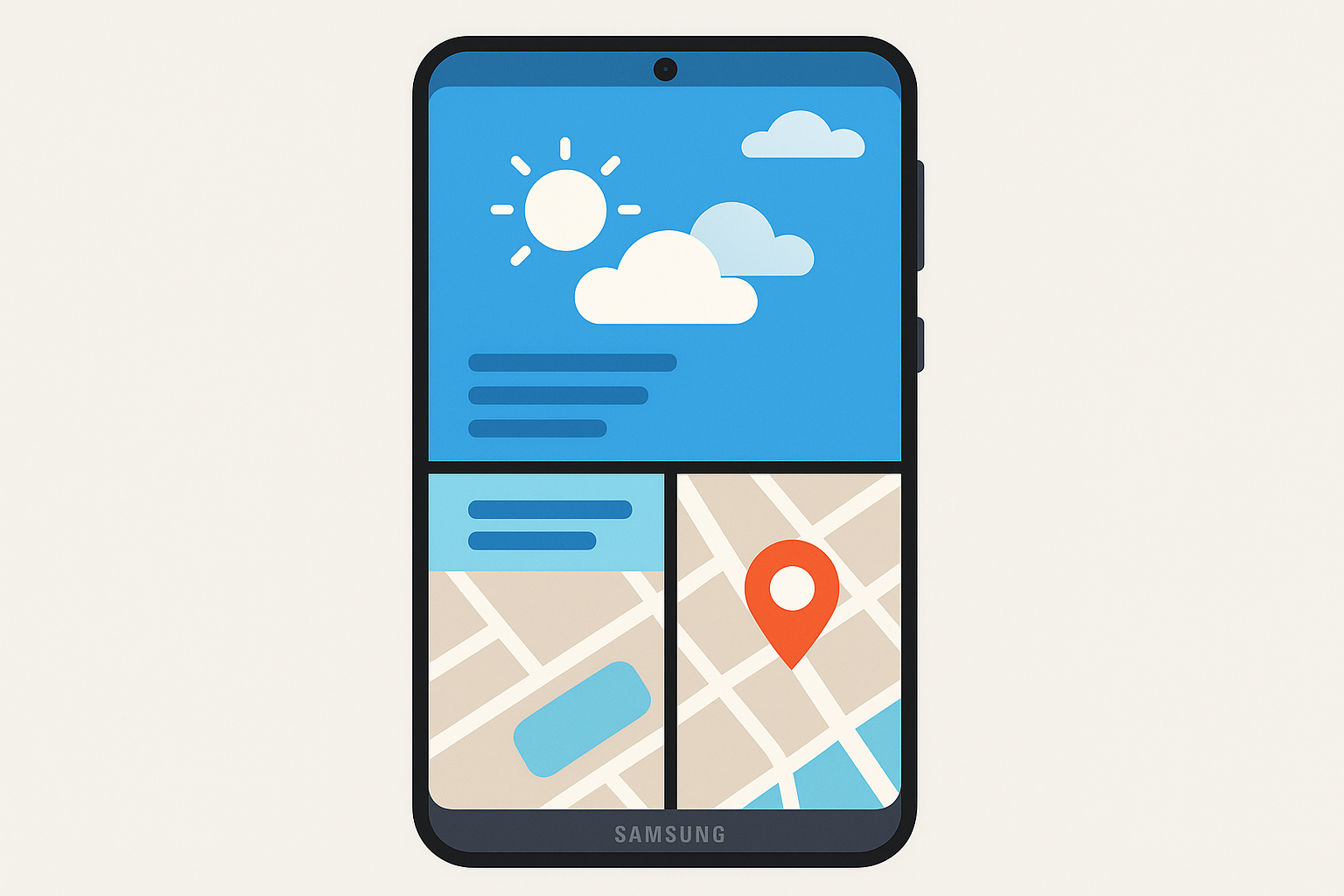
Media Consumption Reality
Video streaming benefits dramatically from larger displays, though the difference is more noticeable than the measurements suggest. Watching Netflix on a 6.8-inch screen versus a 6.1-inch screen genuinely feels like upgrading your TV – the larger display provides actually immersive viewing experiences instead of squinting at tiny details.
Gaming performance scales well with screen size when the phone can handle the heat. Extended gaming sessions on large displays generate serious warmth, making Samsung's vapor chamber cooling systems essential for sustained performance. Without proper cooling, even flagship phones start throttling after 30 minutes of intensive gaming.
One-Handed Use Limitations
Let's be honest – phones over 6.5 inches require two-handed operation for most tasks. Samsung's software includes one-handed modes, but they feel more awkward than helpful and defeat the purpose of having a large screen in the first place.
Reaching the notification panel or top-corner buttons becomes genuinely difficult without adjusting your grip. Samsung's gesture navigation helps somewhat, but the physical reality of large phones means accepting two-handed operation as the norm, which can be frustrating when you're carrying other things.
When using the Galaxy S24 Ultra for navigation while driving, the 6.8-inch screen makes map details clearly visible from arm's length, but reaching the search button in the top corner requires shifting your grip or using your other hand. Samsung's Edge Panel feature helps by providing quick access to frequently used apps through a side swipe, but basic interactions still require grip adjustment or two-handed operation most of the time.
Large Samsung phones excel at productivity and media consumption but you have to accept two-handed operation as standard. The benefits of substantial screen space for multitasking, content creation, and entertainment viewing outweigh the ergonomic compromises for users who prioritize functionality over one-handed convenience – but it's a real trade-off that affects daily use.
Battery Life vs Display Size Reality
Samsung's approach to battery optimization varies significantly across their large phone lineup, and bigger screens don't automatically mean worse battery life – though the relationship is complicated.
Flagship Efficiency Advantages
The samsung galaxy s25 ultra's 5000mAh battery actually provides better endurance than many smaller phones due to advanced power management, though heavy use still drains it faster than you'd expect. The Snapdragon 8 Elite processor's efficiency improvements help offset the large display's power demands.
LTPO display technology makes a huge difference in real-world usage. Adaptive refresh rates drop to 1Hz for static content, dramatically reducing power consumption during reading or idle periods. Budget models with fixed 120Hz displays can't match this efficiency, and you'll notice the difference in battery life.
Phone Model |
Screen Size |
Battery |
Processor |
Avg Screen Time |
Efficiency Rating |
|---|---|---|---|---|---|
S25 Ultra |
6.8" |
5000mAh |
Snapdragon 8 Elite |
8-10 hours |
Excellent |
S25 Plus |
6.7" |
4900mAh |
Snapdragon 8 Elite |
8-11 hours |
Excellent |
A73 |
6.7" |
5000mAh |
Snapdragon 778G |
6-8 hours |
Good |
A56 |
6.7" |
5000mAh |
Exynos 1480 |
7-9 hours |
Very Good |
Note 20 Ultra |
6.9" |
4500mAh |
Snapdragon 865+ |
5-7 hours |
Fair |
Z Fold 7 |
7.6" unfolded |
4400mAh |
Snapdragon 8 Elite |
6-8 hours |
Good |
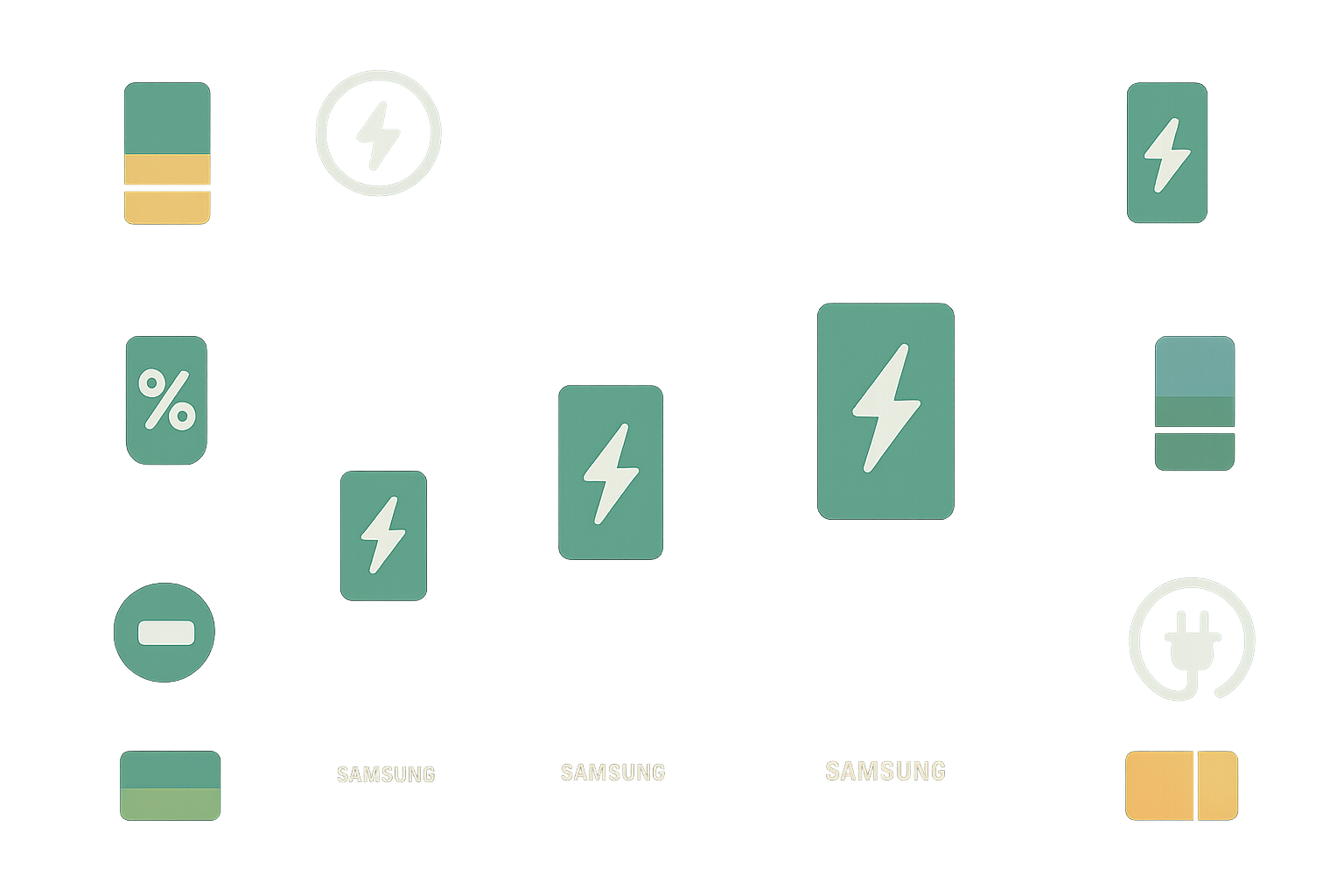
Mid-Range Battery Challenges
A-series phones often pair large displays with less efficient processors, creating battery life challenges that become obvious during heavy use. The Galaxy A56's 5000mAh capacity provides decent endurance, but intensive gaming or video streaming reveals the limitations of mid-range power management.
Charging speeds vary dramatically across Samsung's lineup, and it matters more than you'd think. Flagship models support 45W fast charging, while budget options often max out at 25W. For large phones that see heavy use, charging speed becomes crucial for maintaining productivity throughout the day.
Real-World Usage Patterns
Large phone users typically consume more media and run more demanding applications, which Samsung's battery optimization tries to account for. Ultra models consistently deliver all-day performance despite intensive use patterns, though "all-day" depends heavily on what you're doing.
Screen-on time varies significantly based on usage patterns. Media consumption on large displays drains batteries faster than productivity tasks, but Samsung's adaptive brightness and refresh rate management help extend endurance during typical mixed usage. Gaming for an hour can easily consume 15-20% of battery life on any large phone.
Samsung's large phones demonstrate that battery life depends more on optimization and processor efficiency than raw screen size. Flagship models with advanced power management often outlast smaller phones with less sophisticated systems, while budget large phones may struggle with intensive usage despite substantial battery capacities – and the charging speed differences become really noticeable in daily use.
Protection Needs for Large Phones
Large Samsung phones face unique protection challenges that standard cases simply can't address effectively. The combination of substantial size, premium materials, and high replacement costs demands specialized protection solutions, and I learned this the hard way.
Drop Risk Reality
Physics works against large phones – they're harder to grip securely and generate more impact force when dropped. Samsung's premium models use durable materials like Gorilla Armor glass, but even the best materials have limits when you're dealing with a 6.8-inch phone that slips out of your hand.
The larger surface area means higher probability of screen contact during drops, and repair costs for these flagship phones can easily exceed $300. Standard cases provide basic protection, but large phones need solutions designed specifically for their unique vulnerability profile.
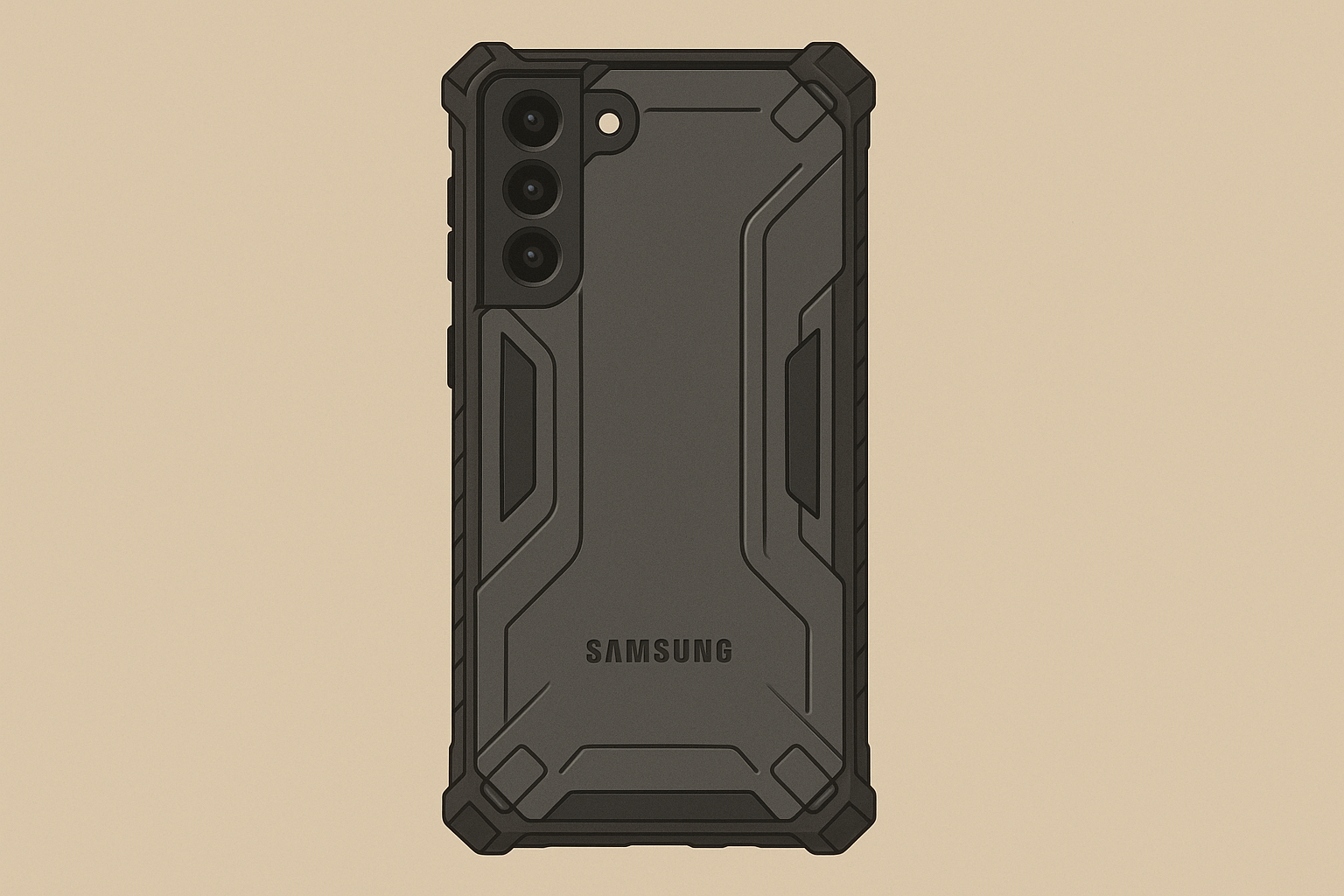
Professional Use Demands
Many large Samsung phone users rely on their devices for professional work. First responders, field technicians, and mobile professionals need protection that ensures device functionality in demanding environments where failure isn't just inconvenient – it's potentially dangerous.
Samsung's large displays serve as mobile workstations, making device failure particularly costly. Professional users need protection systems that maintain full functionality while providing military-grade durability, which most consumer cases simply can't deliver.
Rokform's Large Phone Solution
When you've invested in Samsung's biggest phones, protecting that investment becomes crucial – I've dropped my S24 Ultra more times than I care to admit. Regular cases just don't cut it for phones this size and expensive. Rokform makes cases that actually protect these things, plus their magnetic mounts are genuinely useful for car navigation and desk setups.
Their cases provide 6ft drop protection that's essential for phones that are inherently harder to grip securely. The magnetic mounting systems transform your large Samsung phone into a versatile productivity tool – perfect for car navigation, desk setups, or hands-free video calls without constantly readjusting the angle.
The no-slip grip technology directly addresses the primary concern of large phone users: maintaining secure hold during use. Whether you're using a Galaxy S25 Ultra for professional photography or an A73 for media consumption, Rokform's mounting solutions maximize the utility of that large screen space while keeping your expensive device secure.
For professionals who depend on large Samsung phones for critical communications, Rokform's military-grade protection ensures your device remains functional when it matters most. The combination of Samsung's large screen capabilities and Rokform's protective mounting creates a robust mobile workstation that can handle demanding real-world use without the constant worry about damage.
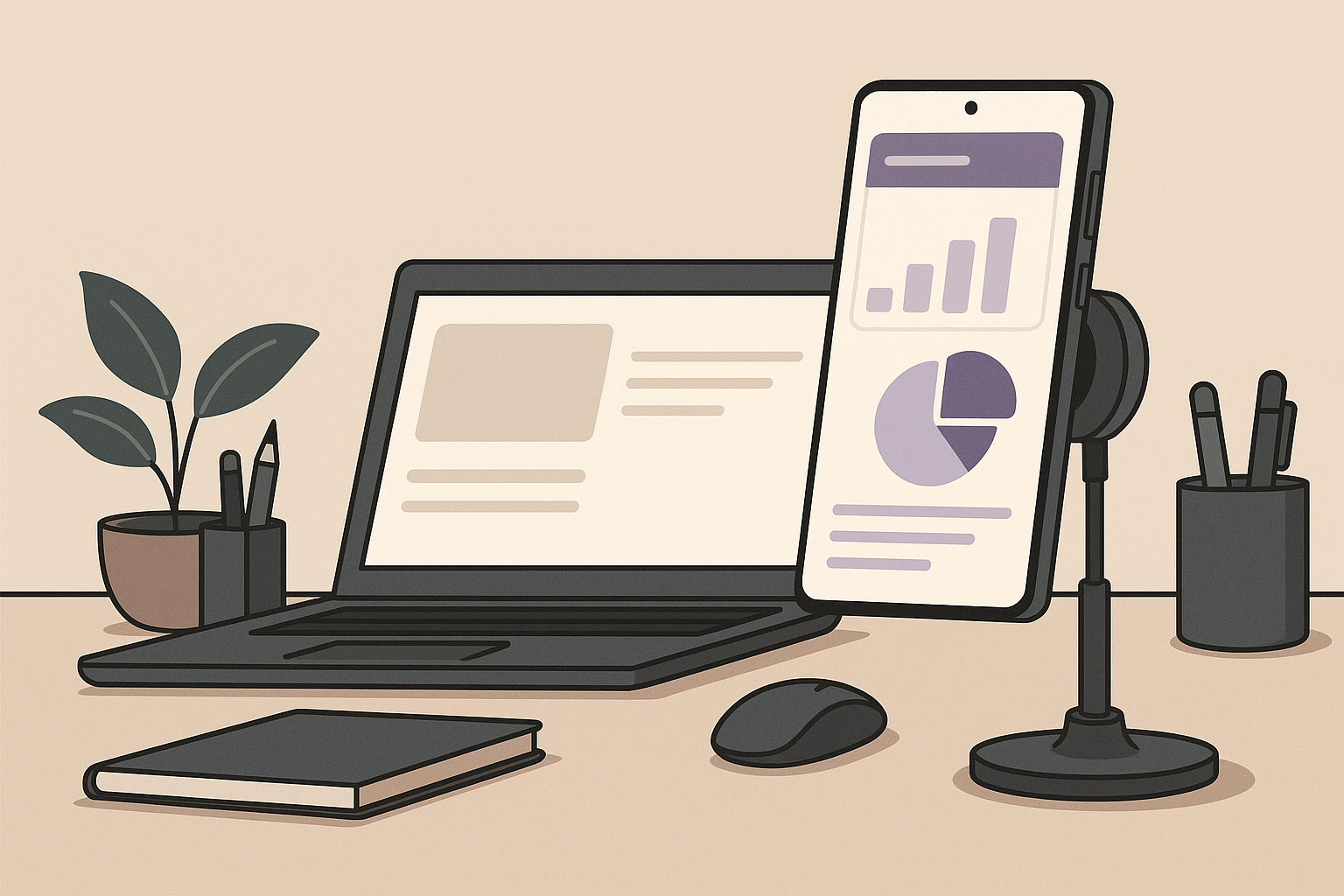
Large Samsung phones require specialized protection due to increased drop risk and higher replacement costs. Rokform's rugged cases and magnetic mounting systems address these unique challenges while enhancing the productivity advantages that make big phone options appealing, creating a comprehensive solution for professional and demanding personal use scenarios.
Final Thoughts
Samsung's biggest phones represent more than just larger displays – they're productivity tools, entertainment centers, and communication hubs that fundamentally change how we interact with mobile technology. From the record-holding Galaxy Note 20 Ultra at 6.9 inches to the innovative Z Fold series that completely redefines what "big" means, Samsung continues pushing the boundaries of large-screen mobile experiences, though not always successfully.
The choice between Samsung's various large phone options ultimately depends on your specific needs, budget, and tolerance for awkward one-handed use. Flagship Ultra models deliver the complete package with cutting-edge displays, professional-grade cameras, and S Pen integration, while Plus series phones offer substantial screens without the premium pricing shock. Fan Edition models make large-screen experiences more accessible, and A-series phones prove that impressive displays don't require flagship budgets – though you'll definitely notice the performance compromises.
What's particularly impressive is how Samsung has addressed some traditional challenges of large phones. Modern power management systems ensure that bigger screens don't automatically mean worse battery life, while refined ergonomics make even 6.8-inch displays more manageable than previous generations. The integration of advanced cooling systems, adaptive refresh rates, and intelligent software optimization shows Samsung's commitment to making large phones genuinely practical rather than just impressive on paper.
However, large phones do require accepting certain trade-offs that Samsung's marketing doesn't emphasize. Two-handed operation becomes the norm, pocket compatibility can be challenging, and the increased drop risk demands serious consideration of protection solutions. For users who prioritize the productivity and entertainment advantages of substantial screen space, these compromises are worthwhile – but they're important to acknowledge before spending $1,000+ on a phone.
The investment in Samsung's biggest phones deserves protection that matches their capabilities and importance to your daily workflow. Whether you're using the latest samsung galaxy s25 ultra for professional work or an A-series model for media consumption, ensuring your device remains functional and secure should be a priority from day one – because replacing these things gets expensive fast.
Look, these big phones aren't for everyone. If you're constantly juggling your phone while doing other stuff, stick with something smaller and save yourself the frustration. But if you spend serious time on your phone – working, watching videos, reading, gaming – the extra screen space is worth the awkwardness and the occasional struggle to reach the top corner of the display. Just invest in a good case from day one, because dropping a $1,200 device hurts more than just your pride.









